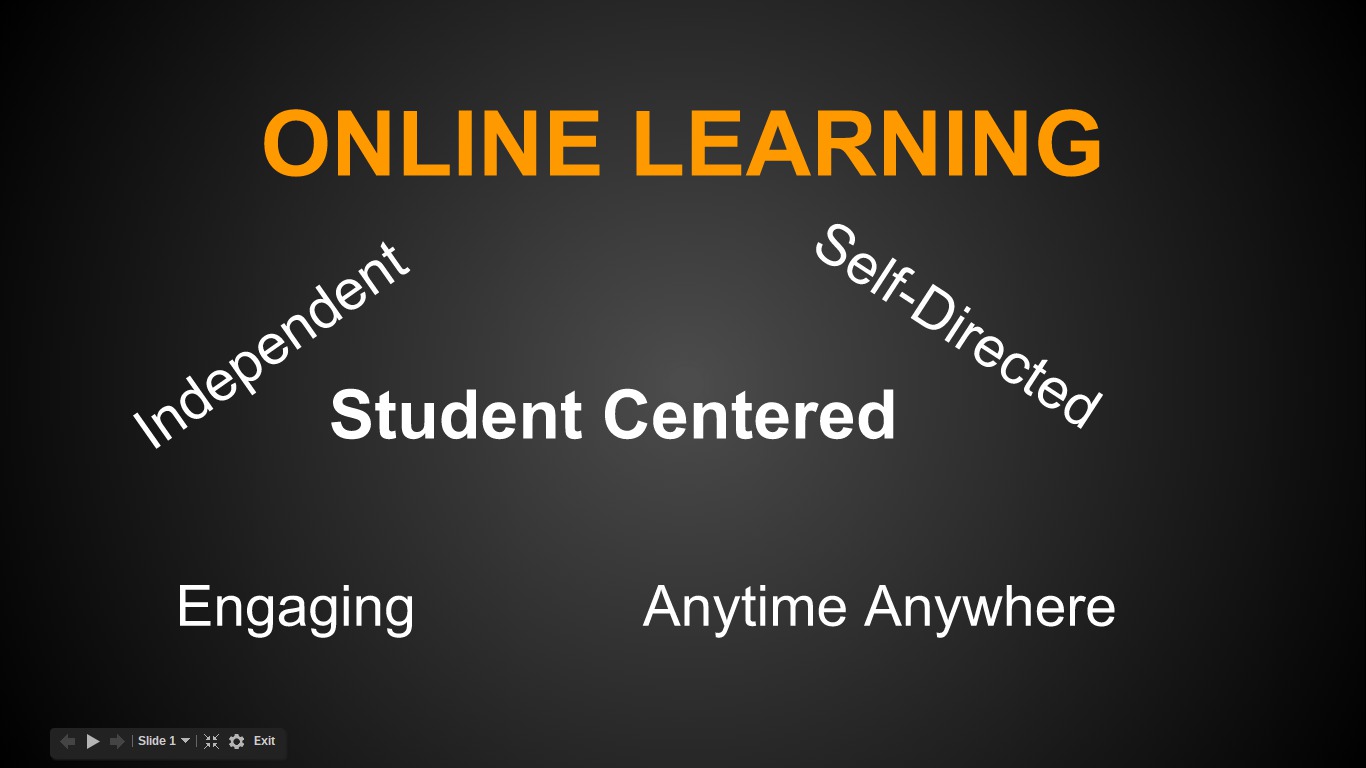Is Online Tuition Truly a Cost Effective Option?
Online Tuition: An Emerging Learning Paradigm
In recent years, the landscape of education has experienced significant transformation with the introduction of online tuition, reshaping the way students access educational resources and interact with educators. Particularly in Singapore, online tuition has not just emerged as a feasible alternative to traditional learning methods, but it has rapidly gained popularity, heralding a new era in the acquisition of knowledge.
Evolving Popularity in Singapore
Online tuition has particularly ingrained itself in the educational fabric of Singapore, revolutionizing learning experiences for students by offering them the convenience of acquiring knowledge from the comfort of their homes. This convenience has propelled the demand for online learning, making it a popular choice for many who seek to balance education with other commitments effectively.
This surge in demand can be attributed to the myriad of benefits online tuition presents:
- Flexibility: Allows students to learn at their own pace and convenience.
- Accessibility: Offers access to a vast array of resources and tutors globally.
- Innovative Learning: Provides diverse and enriched learning experiences through advanced educational tools and platforms.
Perception of Cost-Efficiency
Commonly, there is a prevalent perception that online tuition might be more cost-effective compared to traditional tuition, primarily due to reduced logistical requirements such as travel. The elimination of travel not only saves time but also eradicates the additional costs usually associated with commuting, making online tuition seemingly more economical and efficient. However, as we delve deeper into this new educational paradigm, we will uncover whether this perception holds ground in reality or is merely a misconstrued notion.
FAQs:
- Why is online tuition becoming popular in Singapore?
- Online tuition offers unprecedented flexibility, accessibility, and innovative learning experiences, making it a preferred choice for many students in Singapore.
- Does the elimination of travel make online tuition more economical?
- While it may seem that the absence of travel and its associated costs would make online tuition more economical, the actual scenario may differ, and various factors need to be considered to determine the true cost-efficiency.
- Is online tuition replacing traditional tuition?
- While online tuition is gaining significant traction, it is not replacing traditional tuition but rather offering an alternative learning method catering to varied learning preferences and needs.
Key Takeaways:
- Online Tuition is transforming the educational landscape, offering a convenient and flexible learning method.
- It has seen a remarkable increase in popularity, especially in Singapore.
- There exists a common perception that online tuition is more cost-effective due to the absence of logistical needs like travel.
- A comprehensive exploration is essential to understand whether online tuition truly offers economic benefits over traditional tuition.
Preview of the Next Section
In the upcoming section, we will undertake a meticulous exploration of the cost structures associated with online and traditional tuition. We aim to dissect the intricate elements influencing the costs in both learning methods, shedding light on whether online tuition genuinely offers an economical advantage despite the apparent reduction in logistical needs. We will delve deep into the varied facets like transportation costs, their impact on traditional tuition fees, and how their elimination in an online setup influences the overall tuition fees.
Stay tuned as we embark on a journey to decode the financial dynamics enveloping online and traditional tuition, and unearth the realities behind the perceived cost efficiencies of online learning platforms.
Is Online Tuition Truly a Cost Effective Option
Delving into the Economics: Comparing Online and Traditional Tuition Costs
As we further navigate the intricate facets of online tuition, it is paramount to conduct an in-depth exploration into the economic structures enveloping both online and traditional tuition methods, focusing particularly on deciphering whether the perceived economic advantages of online tuition are rooted in reality.
Dismantling the Cost Structures
Online Tuition Costs:
The overall cost of online tuition is not merely limited to the fee paid to the tutor. It is a conglomeration of multiple charges, including subscription fees for tutoring platforms and additional costs related to resources and materials. Surprisingly, despite the apparent reduction in logistical needs, online tuition is not always the more economical alternative, with some online tutors sometimes charging more due to the added value and convenience they provide.
Traditional Tuition Costs:
Conversely, traditional or home tuition often comes with its set of expenses. Beyond the tutor’s fees, it involves transportation costs and, at times, additional charges for learning materials and resources. While the removal of such costs in an online environment might suggest lower tuition fees, the actual scenario may portray a different picture, reflecting the embedded processing fees and added value in online tuition.
The Influence of Transportation Costs
In a traditional tuition setup, transportation costs play a significant role in determining the overall tuition fees. These costs, nonexistent in an online learning environment, are usually absorbed within the fees charged by home tutors. However, the absence of transport costs in online tuition does not necessarily translate to lower tuition fees, underscoring the need to analyze the underlying reasons contributing to the fee structures in online tuition.
The Impact of Embedded Processing Fees
One of the pivotal factors affecting the cost structure of online tuition is the inclusion of embedded processing fees. These fees, although seemingly inconspicuous, significantly influence the overall costs, leading to a scenario where online tuition rates are not lower despite the absence of transportation costs. This underlines the importance of scrutinizing the concealed components of online tuition fees to gain a comprehensive understanding of its economic implications.
FAQs:
- Why isn’t online tuition necessarily cheaper despite lowered logistical needs?
- Online tutors may charge more due to the added value and convenience they provide, and there may be embedded processing fees and platform charges that contribute to the overall costs.
- How do transportation costs impact traditional tuition fees?
- Transportation costs are typically absorbed within the fees charged by home tutors, contributing to higher overall costs in traditional tuition setups.
- Do embedded processing fees affect the cost-efficiency of online tuition?
- Yes, embedded processing fees significantly impact the overall costs of online tuition, often leading to higher fees despite the absence of logistical needs like transportation.
Key Takeaways:
- A detailed exploration of the cost structures is crucial to understand the economic intricacies of online and traditional tuition.
- Despite the apparent reduction in logistical needs, online tuition is not always more economical, with some tutors charging more for the added value and convenience.
- The absence of transportation costs in online tuition does not necessarily equate to lower fees due to the impact of embedded processing fees and added value.
- A comprehensive understanding of the concealed components influencing online tuition fees is essential to assess its true economic implications accurately.
Preview of the Next Section
As we transition to the next section of our exploration, we will delve deeper into the role of online platforms and their charges. We will investigate how these platforms operate as marketplaces, connecting tutors and students while charging a fee, and how these fees likely impact the students. We aim to provide insights into the operation of different platforms, their charges, and how they maintain comparable cost ranges due to incurred expenses like tutor training. Stay tuned as we unravel the intricate dynamics of online tutoring platforms and their influence on the cost structures of online tuition.
Navigating the Dynamics: Understanding Online Platforms and Their Charges
Embarking on the third part of our journey through the labyrinth of online tuition, it becomes imperative to delve into the nuances of online platforms and how they influence the cost of education. These platforms, often perceived as mere connectors between tutors and students, hold a significant role in shaping the tuition costs and thus warrant a closer examination to unravel the underlying economics.
The Operational Mechanics of Online Platforms
Marketplace for Teaching Services:
Online tutoring platforms operate fundamentally as connectors, creating a marketplace where teaching services are bought and sold. They facilitate the interaction between tutors and students, providing a structured environment for learning to take place. However, it is crucial to understand that these platforms are not just passive intermediaries but active participants in shaping the tutoring services landscape.
Platform Charges and Their Impact:
These platforms usually charge a fee to the tutors using their services, a cost often indirectly borne by the students. Understanding the pricing mechanisms of different platforms becomes crucial as it helps in discerning the true cost of online tuition. Each platform has its unique charging structure, impacting the overall tuition fees and consequently, the choice of platform becomes a critical factor in determining the economic efficiency of online tuition.
The Varied Cost Structures of Different Platforms
The diversification in the operational models of different platforms leads to a variance in their cost structures. Some platforms, adhering to a more traditional model, act as intermediaries, charging a fee for their services. Conversely, others connect tutors with students directly, bypassing the intermediary model but maintaining comparable cost ranges due to other incurred expenses like tutor training.
- Intermediary Model:
- Acts as a connector between students and tutors
- Charges a fee for the services provided
- Fee is often passed on to the students indirectly
- Direct Connection Model:
- Connects tutors and students directly
- Bypasses the intermediary model
- Maintains comparable cost ranges due to other incurred expenses
FAQs:
- How do online platforms impact the cost of tuition?
- Online platforms charge tutors a fee for using their services, which is often indirectly passed on to the students, thus affecting the overall tuition cost.
- Do different platforms have varied cost structures?
- Yes, different platforms operate on varied models, some acting as intermediaries while others connect tutors and students directly, each with its unique cost implications.
- Is choosing the right platform crucial for economic efficiency in online tuition?
- Absolutely, the choice of platform, due to its impact on overall tuition fees, becomes a pivotal factor in assessing the economic viability of opting for online tuition.
Key Takeaways:
- Online tutoring platforms play a pivotal role in shaping the cost of education, operating as active entities in the tutoring landscape.
- The platforms charge a fee to the tutors, often impacting the students indirectly, making the understanding of their pricing mechanisms crucial.
- Varied operational models among different platforms lead to diversification in cost structures, affecting the overall economic efficiency of online tuition.
Introduction to the Subsequent Section
As we advance to the subsequent section, our exploration will focus on assessing the value of online versus traditional tuition. We will scrutinize the numerous considerations that play a crucial role in choosing between online and traditional tuition, such as coordination, convenience, and parental involvement. Additionally, we will weigh the pros and cons of each method, evaluating aspects like geographical restrictions, scheduling flexibility, and the depth of engagement, to provide a comprehensive understanding of their impact on the learning experience.
Assessing the Value: Online vs Traditional Tuition
In this fourth installment of our comprehensive exploration into online tuition, we cast our analytical gaze upon the value assessment between online and traditional tuition. This comparison will illuminate the merits and limitations inherent to each approach, providing readers with discerning insights to facilitate informed decisions regarding tuition selection.
Delving into the Considerations for Choice
The decision between online and traditional tuition hinges on several pivotal considerations, each influencing the value proposition of the respective tuition modes. Areas such as coordination, convenience, and parental involvement become the lenses through which we assess the value offered by both online and traditional tuition methodologies.
Weighing the Advantages and Disadvantages
Online Tuition:
- Geographical Liberation: Online tuition liberates students and tutors from geographical constraints, expanding accessibility to a vast network of tutoring services.
- Flexibility in Scheduling: It provides enhanced scheduling flexibility, enabling learning at times most conducive to individual needs.
- Broad Range of Choices: The abundance of options available online empowers students to find the ideal match in tutors, enriching their learning experiences.
Traditional Tuition:
- Face-to-Face Engagement: Traditional tuition offers the invaluable benefit of in-person interaction, fostering a deeper connection between students and tutors.
- Enhanced Focus: The physical presence in a shared environment can often translate to improved focus and minimized distractions.
- Personalized Touch: The tangible human presence in home tuition can provide a unique personalized touch, aiding in the development of stronger rapport and enhanced learning dynamics.
Evaluating the Human Touch and Convenience
Online tuition, while laden with conveniences and an extensive array of choices, does come with the trade-off of reduced human interaction. This reduction necessitates an evaluation of whether the convenience and variety in online tuition are ample compensations for the lack of a more human and personalized learning experience inherent to private tuition.
FAQs:
- What are the key considerations when choosing between online and traditional tuition?
- Aspects like coordination, convenience, and parental involvement are crucial considerations when choosing between online and traditional tuition.
- How does online tuition enhance learning experiences?
- It offers geographical liberation, flexibility in scheduling, and a broad range of choices, enabling students to find ideal tutors, thereby enriching learning experiences.
- What unique value does traditional tuition bring?
- It provides face-to-face engagement, enhanced focus due to physical presence, and a personalized touch, fostering a deeper connection and stronger learning dynamics.
Key Takeaways:
- The choice between online and traditional tuition is multifaceted, hinging on considerations like convenience, coordination, and parental involvement.
- While online tuition offers geographical freedom, scheduling flexibility, and varied choices, traditional tuition brings the advantages of in-person interaction, enhanced focus, and a personalized touch.
- The trade-off between the convenience of online tuition and the human touch of traditional tuition requires a careful evaluation to discern the most suitable option based on individual needs and preferences.
Introduction to the Subsequent Section
In the ensuing and final section of our series, we will consolidate the amassed knowledge to present a conclusive summary and insightful recommendations. This synthesis will delineate the alignments and disparities in costs between online and private tuition.
Furthermore, we will delve into discerning which method proffers more benefits based on varied needs and preferences—be it a broader access to diverse tutors or a closer, more personalized tutor relationship. Recommendations will focus on leveraging both online and traditional tuition methods for maximized benefits and encourage a well-rounded approach to the pursuit of knowledge.
Conclusion & Recommendations: Online vs Traditional Tuition
In the concluding section of this exploration into online tuition and traditional tuition, we integrate the insights garnered from preceding sections to furnish a consolidated view, aiming to guide prospective students and parents in making informed decisions tailored to individual needs and preferences. We succinctly juxtapose the alignments and disparities in costs between the two modes, offering nuanced recommendations and prompting a thorough reflection on the diverse facets of tuition services.
Alignment & Disparity in Costs: A Synthesis
A profound understanding of the inherent cost structures in online and private tuition reveals that the perceived cost-effectiveness of online tuition, due to diminished logistical needs, may not always hold water. The elimination of transportation costs in online environments does not necessarily translate to reduced tuition fees, as embedded processing fees and the charges by tutoring platforms often offset the savings.
Delineation of Benefits Based on Preferences
The optimal mode of tuition is contingent upon individual preferences and requisites, be it access to a diverse array of tutors or a more intimate and personalized tutor relationship. The expansive and varied tutor network afforded by online tuition may appeal to those prioritizing diversity and flexibility, whereas the enriched interpersonal interactions intrinsic to traditional tuition may resonate more with those seeking a more personalized learning dynamic.
Leveraging Diverse Tuition Methods
We advise a multifaceted approach, leveraging the unique benefits of both online and traditional tuition to construct a holistic learning experience. It is imperative to remain cognizant of the unique advantages and limitations intrinsic to each mode and to amalgamate them adeptly to attain enriched learning outcomes.
FAQs:
- Is online tuition more cost-effective compared to traditional tuition?
- Not necessarily. Despite the reduction in logistical needs, the costs incurred due to processing fees and platform charges may negate the potential savings in online tuition.
- Which mode of tuition offers more personalized learning experiences?
- Traditional tuition tends to offer more personalized and enriched interpersonal interactions due to the face-to-face engagement between students and tutors.
- How can one maximize the benefits of both tuition modes?
- Adopting a well-rounded approach by combining the unique advantages of both online and traditional tuition can help in maximizing the learning benefits.
Recommendations & Reflections
- Explore Free Trials: Before any financial commitments, prospective students are encouraged to explore free trials offered by many online education platforms, allowing a firsthand experience of the services provided.
- Combine Methods: A well-rounded approach, leveraging both online and traditional tuition, can potentially offer the most comprehensive learning experience, catering to a wide array of learning needs and preferences.
- Reflect on Priorities: It is crucial for individuals to reflect on their learning priorities and preferences, whether it is the convenience and flexibility of online tuition or the personalized touch inherent to home tuition.
Final Recapitulation On Is Online Tuition Truly a Cost Effective Option?
This extensive exploration into the realms of online and traditional tuition has traversed varied terrains, shedding light on their inherent cost structures, the role of online platforms, the value propositions, and finally, a synthesizing conclusion with nuanced recommendations.
The journey commenced with a glimpse into the rising popularity of online tuition, especially in Singapore, followed by a deep dive into the comparison of costs between the two tuition modes, revealing that the anticipated cost-effectiveness of online tuition might not always be the reality.
Further, we delved into the operational dynamics of tutoring platforms, elucidating how they serve as marketplaces for tutoring services and how their charges influence the overall tuition fees. The subsequent sections proffered a comprehensive evaluation of the value and benefits associated with each mode, spotlighting the considerations influencing the choice between online and traditional tuition.
Ultimately, our journey concludes with this final synthesis and a set of recommendations, urging prospective learners to reflect, explore, and integrate diverse tuition methods to cultivate enriched and holistic learning experiences, tailored to individual needs, preferences, and aspirations.
Call to Action:
We encourage readers to ponder their priorities and preferences when contemplating tuition options, advocating for a harmonious blend of both online and traditional methods to enrich learning experiences. Explore, reflect, and embrace the multitude of learning pathways available, forging a personalized and enlightened learning journey.
Is Online Tuition Truly a Cost Effective Option? by Tuition Domain





